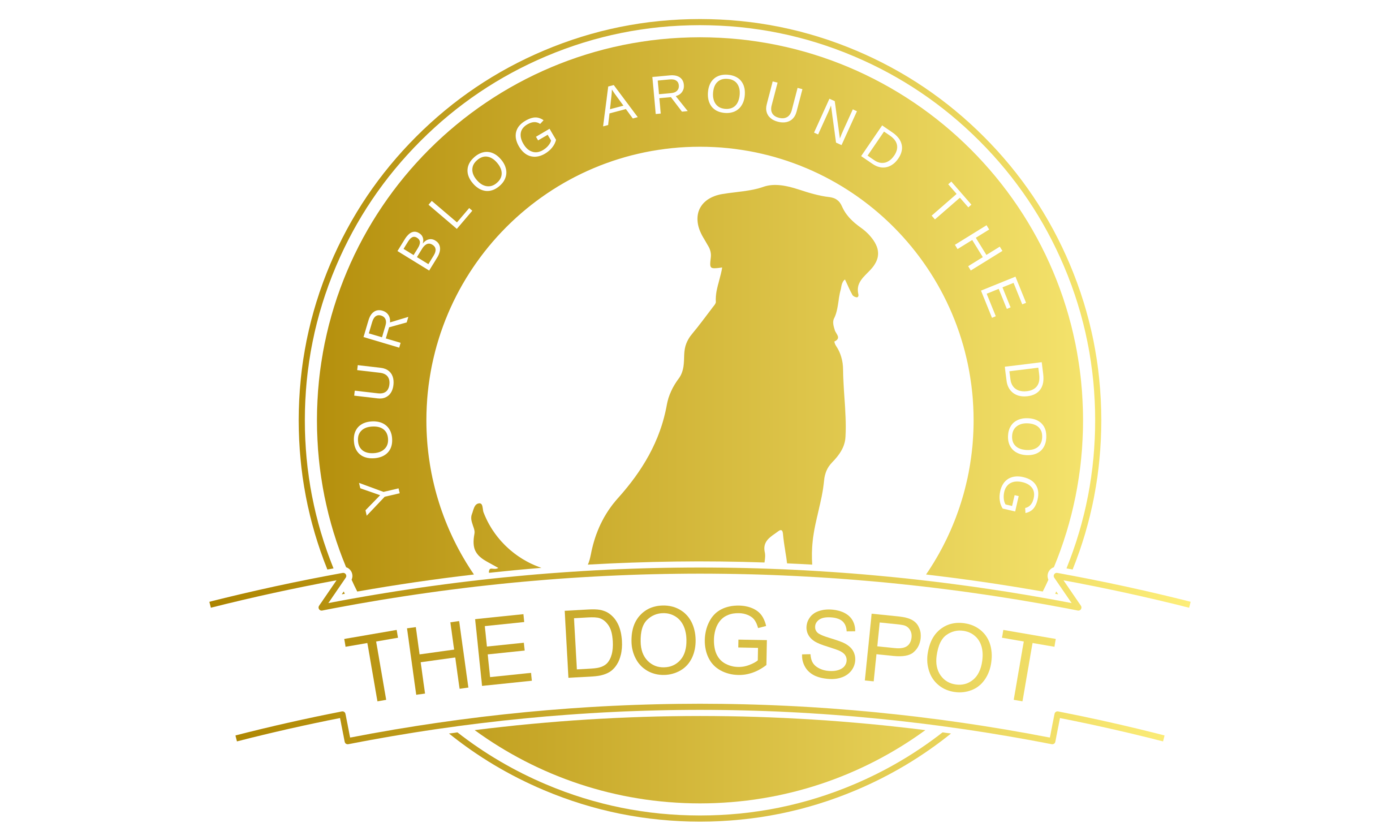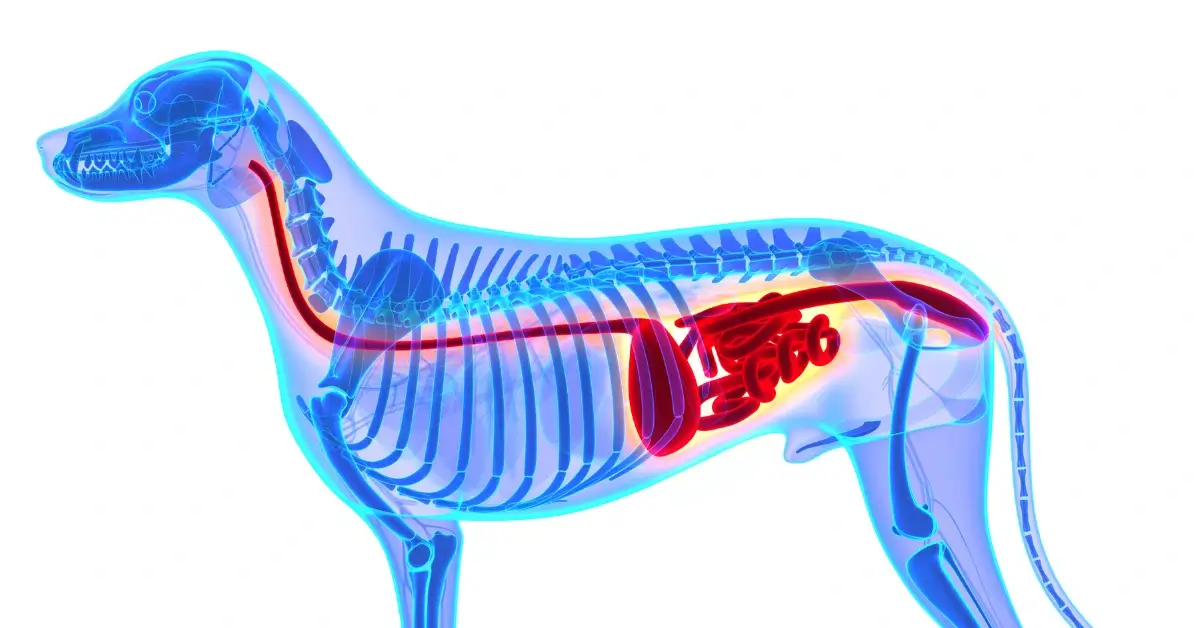Just like us, you want your dogs to be healthy and happy. A crucial aspect of their health is good digestion. But how long does it take for dogs to digest food? In this article, we will delve into the digestion process in dogs and discuss the factors that can influence digestion.
Pros
🐶 Provides lots of tricks and information for having a balanced diet with genuine, natural foods
🐶 Includes easy-to-follow recipes that are nutritious, balanced, and tasty
🐶 Allows you to prepare your dog's food independently and follow the right doses and the best ingredients
Cons
🙀 A few of the recipes include leek, which is dangerous for dogs to consume
🙀 Some readers would have preferred more pictures to accompany the recipes
🙀 The book is relatively short at only 84 pages
How Long Does It Take For Dogs To Digest Food: Digestion Process in Dogs
As a dog owner, it’s worthwhile to ask the question, “How long does it take for dogs to digest food?” The digestion process in dogs shares similarities with humans, but there are also some differences.
Mouth and Esophagus
The digestion process begins in the mouth, where chewing and tearing reduce the food into smaller pieces. A dog’s teeth are shaped to crush and grind food, and then the food is transported to the stomach through the esophagus.
Stomach and Small Intestine
In the stomach, food mixes with digestive juices like stomach acid and enzymes. These substances aid in further breaking down and decomposing the food. The stomach is also capable of killing bacteria that might be present in the food. The partially digested food is then moved to the small intestine for further digestion.
Large Intestine and Elimination
In the small intestine, digestion continues with digestive juices like bile and pancreatic secretions breaking down the food. Nutrients are absorbed into the body, and the undigested portion is transported to the large intestine, where water and electrolytes are absorbed from the food. The resulting feces are then expelled through the rectum.

The time a dog takes to digest its food depends on various factors, such as the dog’s size, the type of food, and the dog’s activity level. Some studies suggest it can take between 4 and 12 hours for a dog to digest its food, while others claim it’s closer to the commonly cited 6 to 8 hours for a dog’s digestion time.
How Long Does It Take For Dogs To Digest Food: Factors Influencing Digestion
The digestion of dogs depends on several factors. Let’s explore some of the key factors that can affect digestion time.
Age and Size
Generally, digestion varies among individual dogs. However, age plays a significant role. Younger dogs tend to digest food faster than older dogs. Similarly, smaller dogs typically digest food more quickly than larger dogs.
Breed and Health Condition
The breed of the dog and its health condition can also influence digestion. Some breeds have more sensitive digestive systems, leading to variations in digestion time. Health issues like gastrointestinal problems may impact digestion duration.
Type of Food and Water Intake:
The type of food and the dog’s water intake are additional factors. Dry food may take longer to digest than wet food as it needs to swell in the stomach. Sufficient water intake is crucial for healthy digestion, and inadequate water consumption can lead to constipation and dehydration.
How Long Does It Take For Dogs To Digest Food: Common Digestive Issues
The question “How Long Does It Take For Dogs To Digest Food” is, of course, also influenced by the health of the dog. Digestive problems are not uncommon in our canine friends.
Some of the most prevalent digestive issues in dogs include constipation, diarrhea, bloating, and vomiting. In this section, we’ll take a closer look at these problems and discuss how to prevent them.

Constipation and Diarrhea
Constipation and diarrhea are two of the most frequent digestive issues in dogs. Constipation may result from factors like insufficient fluid intake, a low-fiber diet, lack of exercise, or stress. Adjusting the dog’s diet, providing more exercise, and ensuring adequate water intake can help alleviate constipation.
Diarrhea can be caused by factors such as sudden dietary changes, stress, the presence of foreign objects, or intestinal parasites. If your dog is experiencing diarrhea, it’s essential to provide plenty of fluids and adjust its diet accordingly.
We have already written a helpful article on this topic.
Bloating and Vomiting
Bloating and vomiting are other common digestive problems in dogs. Bloating can result from ingesting air during eating or inadequate food digestion. Ensuring your dog gets enough exercise and providing smaller, more frequent meals can help with bloating.
Vomiting can be caused by various factors, including stress, the presence of foreign bodies, or dysbiosis. If your dog vomits frequently, it’s crucial to have it examined by a veterinarian to identify the underlying cause.
Digestive issues in dogs can be uncomfortable and should not be ignored. However, many of these problems can be prevented or treated through proper nutrition, regular exercise, and routine veterinary check-ups.
How Long Does It Take For Dogs To Digest Food: Tips for Promoting Your Dog’s Digestion
Now that we have answered the question “How Long Does It Take For Dogs To Digest Food?” here are some tips for you on how you can support your dog’s digestion.

Regular Exercise
Regular physical activity can help improve your dog’s digestion. Adequate exercise contributes to the more effective functioning of the dog’s body and accelerates digestion. We should ensure that our dog gets enough exercise to boost its digestion.
Stress-Free Environment
We should strive to create a stress-free environment for our dogs, as stress can hurt your dog’s digestion. Engaging our dog with toys, chew treats, or a comfortable place to relax can help alleviate stress.
Hydration
Sufficient fluid intake is essential for healthy digestion. We should ensure that our dog has access to fresh water at all times. Water helps dilute the food in the intestines and facilitates bowel movements.
Prebiotics and Probiotics
Prebiotics and probiotics can contribute to improving your dog’s digestion.
Prebiotics are indigestible food components that promote the growth of beneficial bacteria in the gut.
Probiotics are live bacteria that contribute to maintaining a healthy intestinal flora. We can provide our dog with prebiotic and probiotic supplements to support its digestion.
Healthy Diet
A balanced and healthy diet is crucial for healthy digestion. We should ensure that our dog receives a balanced diet containing all the necessary nutrients. It’s also important to ensure that our dog gets high-quality food that is easily digestible.
Implementing these tips can improve our dog’s digestion and help them lead a healthier life.
How Long Does It Take For Dogs To Digest Food: Nutrition and Digestive Health
As dog lovers, we want to ensure that our four-legged friends receive the best possible nutrition to ensure optimal digestive health. In this section, we will address the choice of dog food, supplements, and vitamins to ensure that our dog receives a balanced diet.
Choice of Dog Food

The choice of dog food is crucial for the digestive health of our dog. There are two main types of dog food: wet food and dry food. Wet food contains more moisture, which can help keep the dog adequately hydrated. Dry food, on the other hand, is more convenient and can help keep our dog’s teeth clean. It’s important to select the right food for our dog’s needs, with special formulations available for specific breeds, age groups, and health conditions.
If you’re wondering how much-wet food is right for your dog, we recommend checking our articles on this topic.
Supplements and Vitamins
Supplements and vitamins can help ensure that our dog receives a balanced diet. Some supplements and vitamins, such as Omega-3 fatty acids and Vitamin E, are beneficial for keeping our dog’s coat shiny and healthy. Others are needed to support a strong immune system and overall health. It’s important to administer supplements and vitamins under the guidance of a veterinarian to ensure that our dog receives the right nutrients.
How Long Does It Take For Dogs To Digest Food: Our Opinion
We hope that our contribution on the topic “How long does it take for dogs to digest food?” has provided you with facts and tips on your dog’s digestion. We believe it’s crucial to understand how a dog’s digestion works. By knowing how digestion functions and the factors that influence it, we can support our furry companions in this vital task. After all, digestion is an extremely important health factor that can be influenced by small and simple means.
FAQ
How long does it take for a dog to digest and poop out food?
For most dogs, the time it takes to fully digest and eliminate food as waste is approximately 8-10 hours, according to sources on “How long does it take for Dogs to digest Food.” However, this timeline can be impacted by factors like a dog’s individual size, age, diet, and whether the food is kibble or wet. Consulting with a veterinarian is recommended for any
Will dogs stop eating when they are full?
Yes, most dogs will stop eating when they feel full. However, some may overeat if extra food is consistently available. It’s best to feed dogs at scheduled times rather than leaving food out all day. This allows their stomachs time to digest fully between meals and helps them recognize natural feelings of fullness. Consulting a veterinarian can ensure individual needs
Why is my dog throwing up undigested food 8 hours after eating?
There are a few potential reasons why a dog may throw up undigested food 8 hours after eating. This could indicate a digestive issue such as gastric hypomotility, which causes slowed stomach emptying. It’s best to consult your veterinarian to determine the cause and rule out any medical problems.
Did you enjoy our article on the topic “How long does it take for Dogs to digest Food?” Do you have any further questions or additions? Please let us know in the comments. We look forward to hearing from you.








